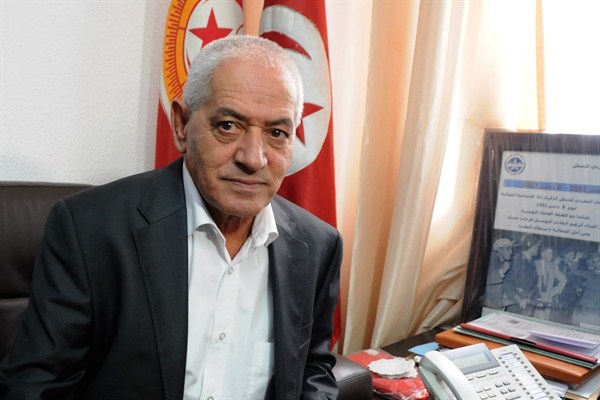The awarding of the Nobel Peace Prize to Tunisia's so-called National Dialogue Quartet was deeply moving to those us who are familiar with the country where the Arab uprisings began in late 2010. The Nobel Committee’s selection of the four civil society organizations for their work in facilitating Tunisia’s democratic transition since then was a welcome revalidation of the country’s potential to build a durable democratic state. For long-time watchers of the committee, it was equally striking that the Nobel Peace Prize did not honor an institution or individual committed to nuclear disarmament, as it has at every mid-decade year since 1975.
The Nobel laureates represent four complementary institutions that have provided ballast to state-society relations in post-uprising Tunisia. The largest and most important historically is the General Union of Tunisian Workers, or UGTT by its French acronym. The others are the country’s bar association, its human rights league and the Confederation of Industry, Trade and Handicrafts (UTICA). These four institutions formed a quartet in 2013 to prevent the country from descending into chaos and conflict, at a time when tensions were high between disappointed secular democrats and the Islamist-led government over the poor government response to two high-profile political killings of secular activists. The quartet persuaded the Islamist party, Ennahda, to cede power to a technocratic government, which then went on to prepare the country for new elections.
The group embodied a spectrum of social forces and enjoyed a legitimacy that any one of the groups acting alone could not. Working as a quartet, they were not self-interested in a specific way, advocating only for labor or economic interests for example, but focused on the national interest and Tunisia’s long-term stability. It represented a mix of Tunisian perspectives, from privileged business elites concerned about postrevolutionary declines in foreign investment to the powerful UGTT labor union, which has over the years played the role of a populist political party pushing back against abuses of power by the presidential palace. The lawyers and human rights activists also represented both well-established institutions and strong proponents of Tunisia’s political evolution to democracy.

